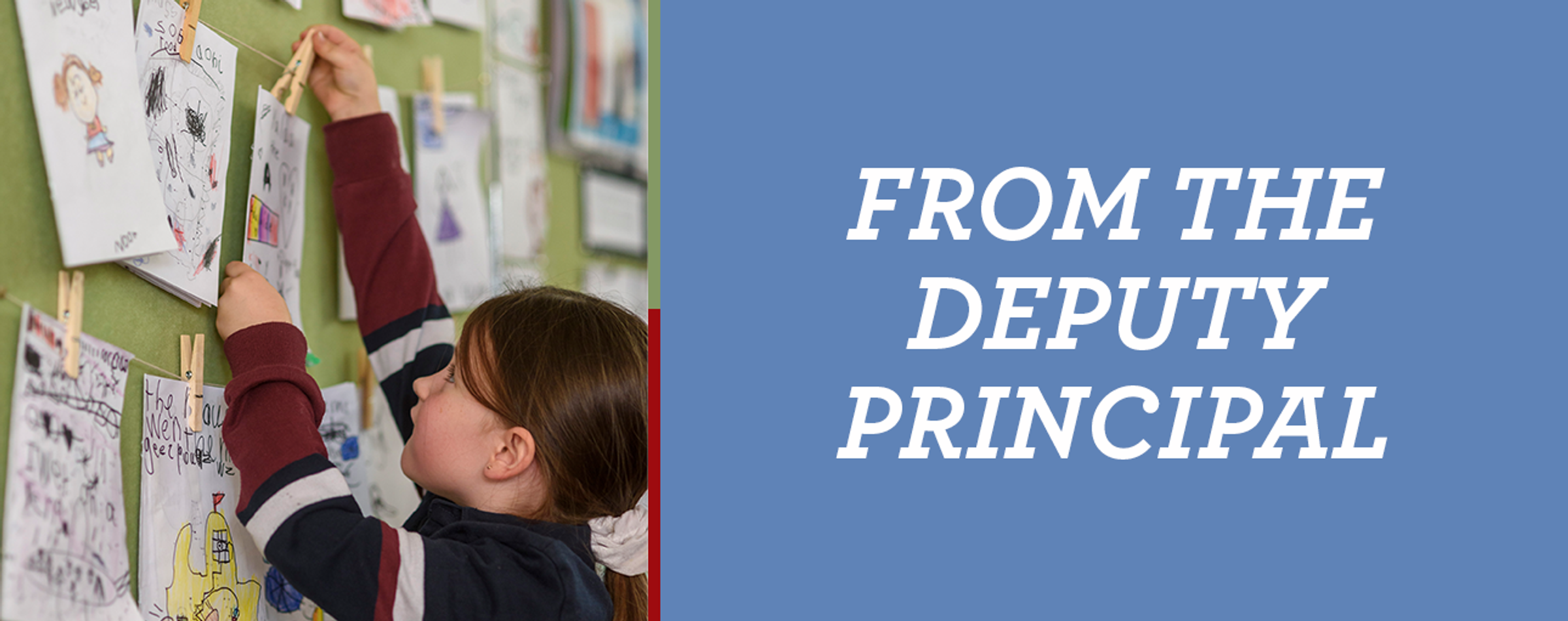From the Deputy Principal
Jason Fay

From the Deputy Principal
Jason Fay
Too often educational institutions are guilty of becoming comfortable with their values and routines and become complacent. The shifting and evolving DNA of economies, technology and communities demand that education is more responsive now than ever before. Watching a daughter deal with the stress of Year 12 exams up close has reinforced this, even when the results from these tests can’t change the fact that she will most likely end up doing the university course next year that she wants to. But this is part of the fallacy that education is all about the academic results. Even at primary level, some parents are sold on schools for their children based on data. Our children, and their experiences in education, are so much more than this.
Even high schools are starting to get the idea that this view needs to change. A new development in education since 2016 has been the increased attention to student pathways beyond compulsory schooling. Many of you will know students who have recently undertaken Year 12 exams to achieve their final ATAR (Australian Tertiary Admission Rank) score. This is the traditional criteria used for entry into most undergraduate-entry university courses.
A recent report though, has shown that more students are now gaining entry to universities through alternative pathways rather than their ATAR. The report, delivered by The Mitchell Institute reported on by the ABC, found that universities had been employing different methods to grant admission to students, such bridging courses, aptitude tests and portfolios. 11% of university student admissions in 2016 were high school students without using their ATAR.
Education in Australia has long been a ‘top down’ model. The Year 12 assessment methods dictate Year 10 and 11 subject content and so on. A shift away from ATAR as the traditional process for entry to higher education will have many ramifications for the Australian education system. For too long, the exam/test assessment model has placed unfair emphasis on the retention of knowledge, even short term, over rich learning, understanding and application.
Australia is the only country that sends students from high school to further studies or the world of work with one rank or value. Pasi Sahlberg, professor of education at Southern Cross University, and a world-renowned education reformer said last year, ‘What’s happening elsewhere? One common trend in places that have had high-stakes secondary school leaving examinations is to move towards assessment or qualification arrangements that reward students based on a wider range of competencies achieved in school that would benefit them in choosing further education or work. This would do away much of the unhelpful competition….A better and less harmful way would be a competency-based reporting of students’ school performance and other passion-based merits gained during high school.’
An article in the Sydney Morning Herald on Monday highlighted this very notion. The author, who completed high school with a 99plus ATAR (maximum score) writes, “As students at high school, we were taught to the exam; as students at university, we carry that habit over, so that even if we are interested in the subjects (and for the most part, I was), in the back of our minds we are always thinking, "Will this be in the final exam?" Unsurprisingly, I fare much worse in practical assessments at university than my grade point average would suggest. During the two internships I have undertaken, I have struggled to retain and apply new skills, as well as accept critical feedback. I’m an employer’s second choice: good on paper but doesn’t deliver.”
Change in the world of education can be slow and often political, but St Paul is well placed to look to the future and respond. One of the key goals from the current Strategic Directions document relates to preparing ’our students for further learning, future work opportunities and active citizenship’. Achieving this goal will ensure St Paul children will leave primary school equipped for the challenges of life. The added bonus being that a Christian education provides an extra dimension in terms of the development of values and spiritual growth.